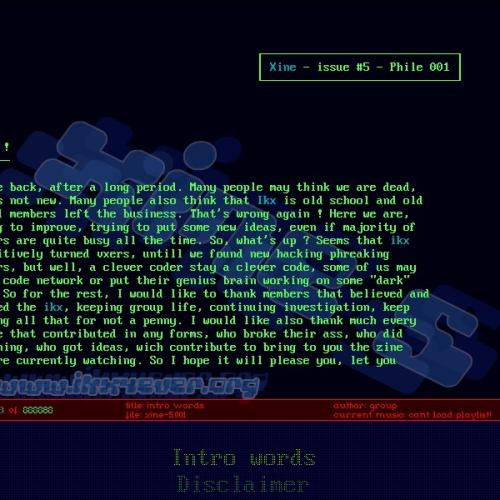Copy Link
Add to Bookmark
Report
AIList Digest Volume 5 Issue 072

AIList Digest Monday, 9 Mar 1987 Volume 5 : Issue 72
Today's Topics:
Seminars - TI AI Satellite Symposium &
Ping Pong Playing Robot (UPenn) &
Using Uncertainty to Solve Analogies (SMU) &
AI and Expert Systems PDS (Los Angeles ACM) &
Updating Databases with Incomplete Information (UPenn) &
Filter Model of Types for Flexible Programming (UPenn)
----------------------------------------------------------------------
Date: 4 Mar 87 17:06:57 EST
From: Peter.Capell@gnome.cs.cmu.edu
Subject: Seminar - TI AI Satellite Symposium
IEEE sponsors...
The TEXAS INSTRUMENT'S Third Artificial Intelligence Satellite Symposium
Wednesday, April 8, 1987 8:30 AM - 3:30 PM
Presenters:
Dr. Edward A. Feigenbaum - AI pioneer, author and lecturer, Stanford
University educator and past president of the American Association of
Artificial Intelligence.
Dr. George Heilmeier - Senior Vice President and Chief Technical Officer of
Texas Instruments, former Director of the Defense Advanced Research Projects
Agency (DARPA).
Dr. Alan C. Kay - Apple fellow, pioneer and key innovator in personal
computing and artificial intelligence. Invented "Smalltalk" computer
language and pioneered the use of icons.
Dr. Douglas B. Lenat - Principal Scientist for Microelectronics and Computer
Technology Corporation (MCC), pioner in machine learning through study of
the nature of heuristics.
Dr. Roger C. Schank - Professor of Computer Science and Psychology, Yale
University, and Chairman of Cognitive Systems, Inc. Pioneer in development
of computer models of memory and learning.
Dr. Herbert Schorr - Group Director of Products and Technology, IBM.
Responsible for the introduction of new advanced technology and
applications.
Dr. Harry R. Tennant - roundtable host, Senior Member Technical Staff and
Manager of AI Research in Texas Instruments Computer Science Laboratory.
Inventor of the concept of menu-based natural language understanding.
Abstract: (see February IEEE Spectrum for more details)
In four hours, Symposium III will examine the very latest developments,
applications and future potential - from diverse perspectives. It will
broaden the view of AI beyond knowledge-based systems to include natural
language processing and rapid prototyping of both AI and conventional
software.
Site (for CMU): The APICS "castle" in Wilmerding
Directions: Lee Ann Goettel: 825-3000
Fee: $6.00 (to cover doughnuts and lunch, Texas Instruments isn't charging
anything for the downlink)
Checks payable to: "APICS" or cash accepted
Registration and information: Call or write -
Attn: Peter Capell (Education Chair)
Center for Art and Technology
111 CFA
Carnegie Mellon University
Pittsburgh, PA 15213
X-8862
------------------------------
Date: Thu, 5 Mar 87 13:02:22 EST
From: tim@linc.cis.upenn.edu (Tim Finin)
Subject: Seminar - Ping Pong Playing Robot (UPenn)
Dissertation Defense
Computer and Information Science
University of Pennsylvania
Real Time Expert System to Control a Robot Ping Pong Player
R.L. Andersson
A real time "expert" control system has been designed
and forms the nucleus of a functioning robot ping pong
player.
Robot ping pong is underconstrained in the task
specification (hit the ball back), and heavily constrained
by the manipulator capabilities. The expert system must
integrate the sensor data, robot capabilities, and task
constraints to generate an acceptable plan of action. The
robot ping pong task demands that the planner anticipate
environmental changes occurring during planning and robot
motion. The inability to generate accurate, timely plans
even in the face of a capricious environment and limited
actuator performance would result in a nonfunctional system.
The program must continuously update the task plan as
new sensor data arrives, selecting appropriate modifications
to the existing plan, rather than treating each datum
independently. The difficult task and the stream of sensor
data result in an interesting system architecture. The
expert system operates in the symbolic and numeric domains,
with a blackboard to enable global optimization by local
agents. The architecture interrelates initial planning,
temporal updating, and exception handling for robustness.
A sensor and processing system produces three
dimensional position, velocity, and spin vectors plus a time
coordinate at 60 Hz. Novel processing algorithms and
careful attention to camera modeling were necessary to
obtain adequate accuracy.
A robot controller provides accurate, predictable
performance close to the envelope of robot capabilities
using modeling and feed-forward techniques. The controller
allows motions to be planned in the temporal domain
including specified terminal velocities, and supports smooth
changes to motions in progress.
Performance of the sensor subsystem, actuator and robot
controller, and expert system will be demonstrated. The
system successfully plays against both human and machine
opponents.
COMMITTEE: DR. LOU PAUL (ADVISOR)
DR. TIM FININ
DR. RUZENA BAJCSY
DR. ROD BROOKS (MIT)
DATE: MARCH 27, 1987
TIME: 10-12 NOON
LOCATION: 129 MOORE (FACULTY LOUNGE)
------------------------------
Date: Thu, 5 Mar 1987 17:34 CST
From: Leff (Southern Methodist University)
<E1AR0002%SMUVM1.BITNET@wiscvm.wisc.edu>
Subject: Seminar - Using Uncertainty to Solve Analogies (SMU)
Seminar Announcement, Southern Methodist University, Department
of Computer Science, Wednesday, Mar 11, 1987, 315 SIC, 1:30PM
USING UNCERTAINTY TO SOLVE ANALOGIES
David Rogers
Cognitive Science and Machine Intelligence Laboratory
University of Michigan
Abstract
Analogy involves the conceptual mapping of one situation
onto another, assigning correspondences between objects in each situation.
Uncertainty concerning the values of the objects' attributes or the
correct category of an object is commonly considered
a nuisance of little theoretical importance. In contrast,
in this approach uncertainty is central: all attributes
are to some degree uncertain, and category assignment of
objects is fluid. Thanks to this all-pervading uncertainty
(rather than dispite it), this architecture allows the system
to represent the multiple, often conflicting pressures that guide
our perceptions of situations in an analogy. Further, parallelism
without global control is intrinsic in this architecture. Control
is distributed throughout the system, at the level of its most
primitive objects -- entities -- each entity communicating with
a small number of other entities in the world.
I will present a domain that uses deceptively simple strings
of letters, followed by a description of the architecture used to
solve problems in this domain. Finally, some results from a program
written to implement these ideas will be presented.
------------------------------
Date: 6 Mar 87 06:40:39 PST (Friday)
From: Chapman.ESM8@Xerox.COM
Subject: Seminar - AI and Expert Systems PDS (Los Angeles ACM)
(I am not on this dl, so please direct any questions directly to me.
Thanks.)
LA ACM is sponsoring a Professional Development Seminar on Artificial
Intelligence and Expert Systems Saturday 18 April 9am-5pm at the LAX
Hilton, 5711 Century Blvd., Los Angeles. Registration begins at 8 am.
Lunch and course notes are included.
PROGRAM
Richard Korf: Introduction to AI & Expert Systems
Ron Citrenbaum: A Practical Approach to Expert System Development
Michael Dyer: Language and Thought: Symbolic and Subsymbolic
Bill Swartout: Making Expert Systems Explainable
Pat Langley: Overview of Problems and Techniques of Machine Learning
COST: before 31 March after 31 March
ACM member $80 $100
non-ACM $100 $120
full-time students*
$5 call Cheryl
*(with proof of full-time student status. Lunch & notes not included;
on a space-available basis only.)
Attendance is limited to 150.
TO REGISTER: send your name, company name, address, home and business
phone numbers, and cheque payable to LA ACM to: Cheryl Chapman, Xerox
Corp, 701 S. Aviation Blvd ESM8-003, El Segundo, CA 90245
(213)606-0639. (For statistics purposes, please mention this message.)
------------------------------
Date: Fri, 6 Mar 87 14:12:57 EST
From: tim@linc.cis.upenn.edu (Tim Finin)
Subject: Seminar - Updating Databases with Incomplete Information
(UPenn)
COLLOQUIUM
Computer and Information Science
University of Pennsylvania
UPDATING DATABASES WITH INCOMPLETE INFORMATION
Marianne Winslett
Stanford University Computer Science Department
Suppose one wishes to construct, use, and maintain a database of facts
about the real world, even though the state of that world is only
partially known. In the artificial intelligence domain, this problem
arises when an agent has a base set of beliefs that reflect partial
knowledge about the world, and then tries to incorporate new, possibly
contradictory knowledge into this set of beliefs. In the database
domain, one facet of this situation is the well-known null
values problem. We choose to represent such a database as a logical
theory, and view the models of the theory as representing possible
states of the world that are consistent with all known information.
How can new information be incorporated into the database? For
example, given the new information that ``b or c is true,'' how can one
get rid of all outdated information about b and c, add the new
information, and yet in the process not disturb any other information
in the database? In current-day database management systems, the
difficult and tedious burden of determining exactly what to add and
remove from the database is placed on the user. The goal of our
research was to relieve users of that burden, by equipping the
database management system with update algorithms that can
automatically determine what to add and remove from the database.
Under our approach, new information about the state of the world is
input to the database management system as a well-formed formula that
the state of the world is now known to satisfy. We have constructed
database update algorithms to interpret this update formula and
incorporate the new information represented by the formula into the
database without further assistance from the user. In this talk we
will show how to embed the incomplete database and the incoming
information in the language of mathematical logic, explain the
semantics of our update operators, and discuss the algorithms that
implement these operators.
March 9, 1987
Room 216 Moore
3:00 to 4:30
Refreshments Available
2:30 to 3:00
------------------------------
Date: Fri, 6 Mar 87 17:00:25 EST
From: dale@linc.cis.upenn.edu (Dale Miller)
Subject: Seminar - Filter Model of Types for Flexible Programming
(UPenn)
Math/CS Logic Seminar
Filter Model of Types for Flexible Programming
Atsushi Ohori
(ohori@cis.upenn.edu)
CIS Dept, Univ of Penn
16 March 1987
In this talk, I will present a mathematical model of data types for
flexible programming. This model can give precise semantics to (1)
polymorphic types, (2) type inheritance used in object-oriented
programming, (3) parametric types, (4) dependent types, (5) recursive
types and (6) higher-order types. I will also discuss some
connections to ``formulae-as-types'' principle.
We consider types as properties of values and define the semantics of
types as the sets of values having those properties. This idea leads
us to define types as principal filters in the underlying value domain
(in the sense of Scott.) Since principal filters are represented by
their minimal elements, types are represented by values. Simple type
constructors are then correspond to operations on the value domain.
The polymorphic type constructor corresponds to the least upper bound
operation. Parametric types and dependent types are represented by
functions on the value domain. Since the set of all principal filters
is isomorphic to the underlying value domain, the semantic space of
types is isomorphic to the value domain. This property allows us to
give semantics to arbitrarily higher-order types without any
inconsistencies.
[Talk will be in Math Seminar Room, 4th floor DRL.]
------------------------------
End of AIList Digest
********************






















